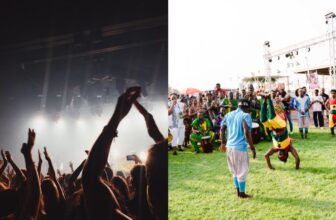Overcome Stage Fright with 10 Simple Tricks
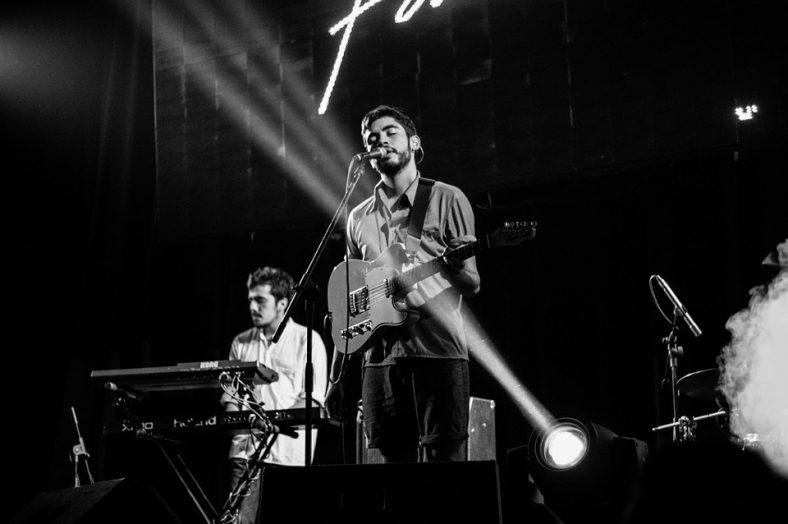
Whether you’re a beginner or a seasoned artist, chances are you still have stage fright. Everyone has a different way of handling this but if you still fail then you should try other ideas.
Your legs are wobbly, your mouth is dry, you probably feel sick or dizzy. Even if you don’t have any physical symptoms, you can still feel worried, timid, tired, anxious. These sensations could also cause a sort of explosive chain reaction: the more you perceive them, the more insecure you feel about your performing abilities.
It’s a nightmare and beginners often end up thinking: “Well if this is what I feel on stage it means I’m just no good enough.”
More experienced musicians, actors, presenters, or any kind of performers out there, on the other hand, know that stage fright is a natural response of your body to the stress of performing live.
This response may attenuate after years and years of experience or never go away at all. It is a hellish feeling, but it is a good sign, after all: that rush of emotion indicates that you care about your performance and that you are willing to work hard on it.
Now, if this reaction is normal and if you will probably experience it for the rest of your life on stage, how can you tame it?
Here’s a list of ten practical tricks to keep stage fright at bay.
Contents
1. Study hard
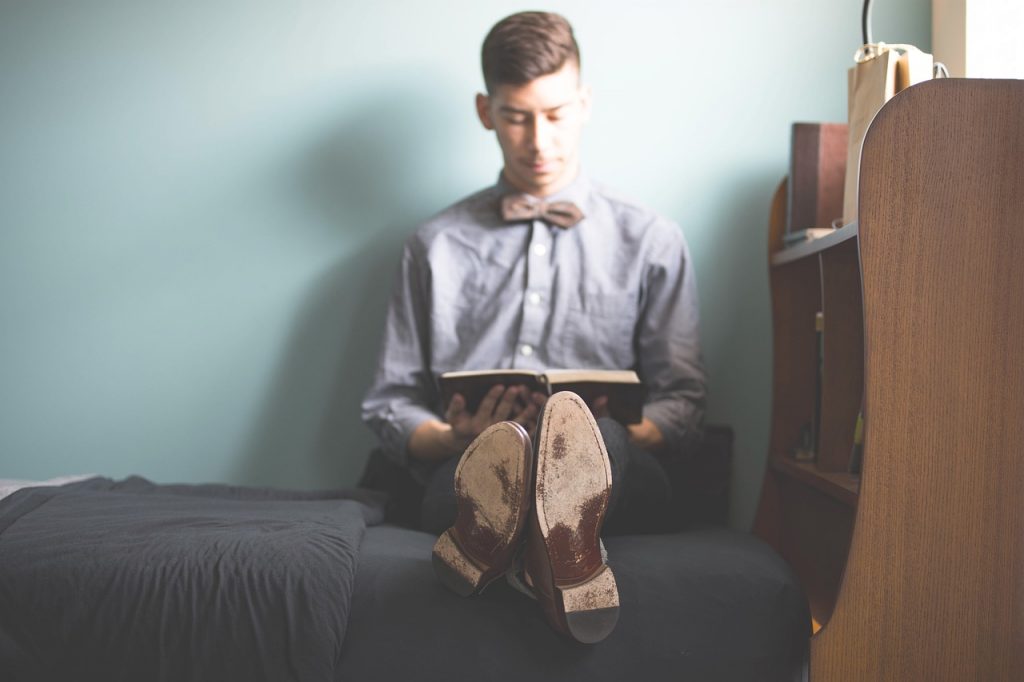
Stage fright might be the symptom of a feeling of insecurity about your performance. To avoid this, make sure you are prepared enough. Study your song, poem, or whatever you are presenting on stage with enough intensity to prevent you from self-doubt.
Plan your studying sessions, allowing enough time to familiarize yourself with the object of your performance. Study hard, and see your insecurities flow away.
2. Warm-up
It is very important to have a warm-up routine. Whether you are a musician, a dancer, or an actor it is advisable to get on stage with your “instruments” warmed up and ready to work.
If you are a singer or an actor, you will warm up your voice with breathing and/or humming exercises. If you’re a dancer, you will warm up your muscles with some stretching. If you’re a guitarist or a pianist, you will warm up your hands, arms, and shoulders. And so on.
This helps you get in the state of performance, therefore, lets you face that issue before you go out on stage. If you don’t eliminate it, at least you will dial it down a notch.
3. Meditate

Before hitting the stage, always allow yourself some time to be mindful of your body, your sensations, your emotions. A simple meditation technique, such as the classic mindful breathing meditation, can help you calm down and feel more centered and focused.
Find a quiet spot, sit down, and close your eyes. Now simply observe your breathing, without forcing it or trying to control it. Focus on the sensations that the air entering your lungs brings. Be mindful of your breath and relax.
Most stage fright consists of an elevated heart rate, to get this in check you would need to slow down your breathing, this is where meditation and breathing exercises help.
4. Do some light physical activity
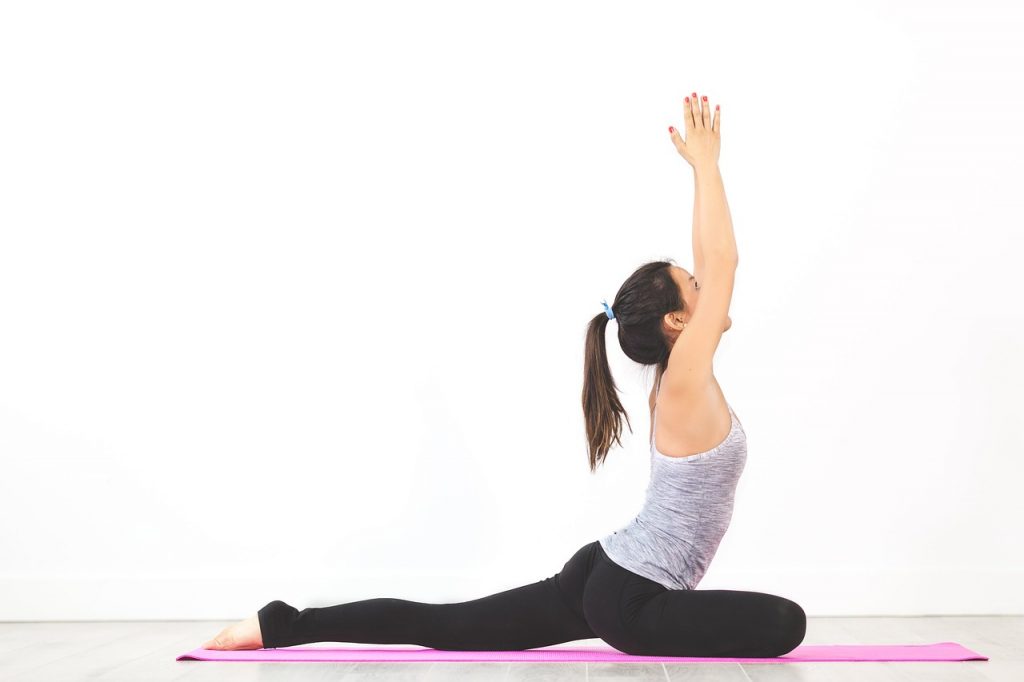
Even if you’re not a dancer, you should warm up your body with some light physical activity before reaching the stage.
Some yoga or some stretching exercises involving your whole body will make you feel relaxed and focused.
As a musician, I usually stretch a bit before a performance, relax the muscles and get into the right mindset. Because if your body is feeling loose than stage fright will dial down.
5. Arrive early
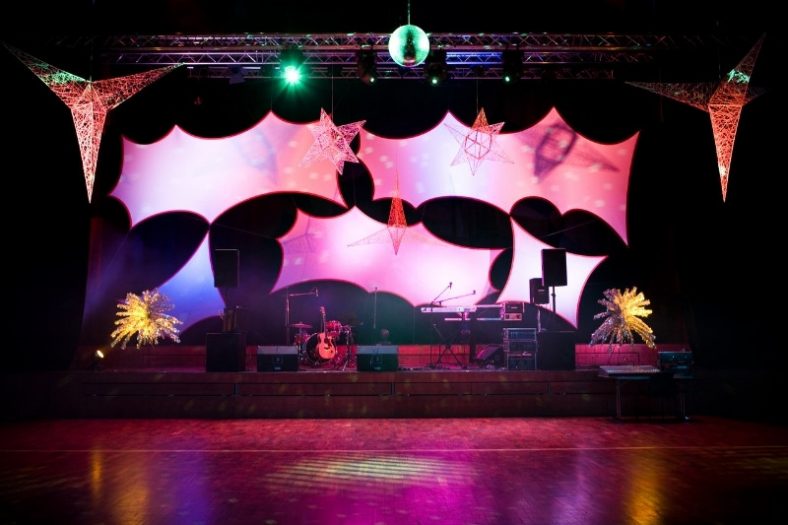
One way to defeat anxiety is to get to the venue you’re performing at a few hours before the performance scheduled time.
This little commitment will allow you to check your equipment and make sure it will run smoothly. It will also allow you to see the space you will use for your performance, familiarizing yourself with it. Not to mention the fact that you will see people as they are arriving, as opposed to just appearing on stage with the whole place packed already.
6. No drinks or other substances
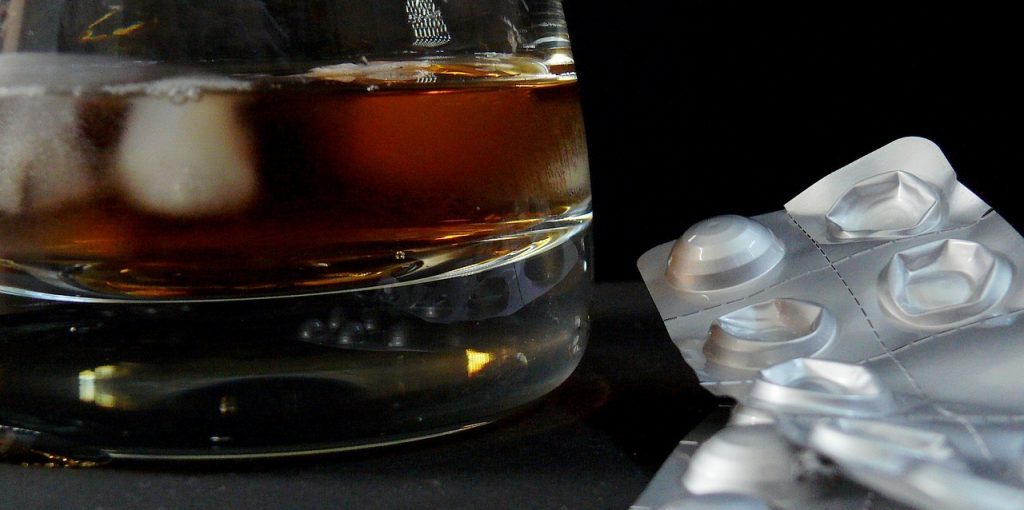
I know, the cliche is clear: rockstars and artists in general love drinking and getting high. However, professional performers know that these habits are dangerous not only for their health but for their performance too.
Alcohol and smoking can seriously harm your voice, while other substances can mess up your focus. They are not proper solutions, what you need is something constant and that’s why this is not a good idea.
If stage fright is a known enemy of yours, don’t rely on these easy tricks to calm down and feel high. Instead, make an effort to understand the reasons behind your anxiety and act accordingly.
7. Focus on your whys
Being a performer is tough, so it is normal to experience setbacks and some discouragement. Negative feelings and wild insecurities can particularly arise before getting to the stage: it’s simply the perfect moment for your anxiety to show up and get in your way.
It can be very effective, in these moments, to remind yourself why you decided to be a performer. What message do you want to deliver to the crowd? What brought you into music, dance, acting in the first place?
Refocus on your whys and everything will seem clearer and less scary.
The ultimate focus should be the feeling you get and the sensation while performing, which always takes my mind off of things and gets me going.
8. Read a book

If stage fright is persistent, invest your time in a good self-help book about self-confidence. You will find a lot of tricks to boost your self-esteem before a performance and at any point in your life.
Reading a good book is also the perfect way to relax and distract your buzzing mind before a frightening performance. This will come in handy in those anxious moments where you would need to take a step back and calm yourself down.
9. Accept failures
Come to terms with one harsh truth: your performance will never be perfect. There will be a mistake, a piece of the equipment not working, a faltering step, whatever. You can’t expect perfection because the essence of performance is that it happens live, with all the difficulties this may cause.
When performing, don’t focus on being flawless, instead, just focus on being in the moment and enjoying what you are doing. This will further your enjoyment and make your overall performance better.
10. Make a connection with the audience
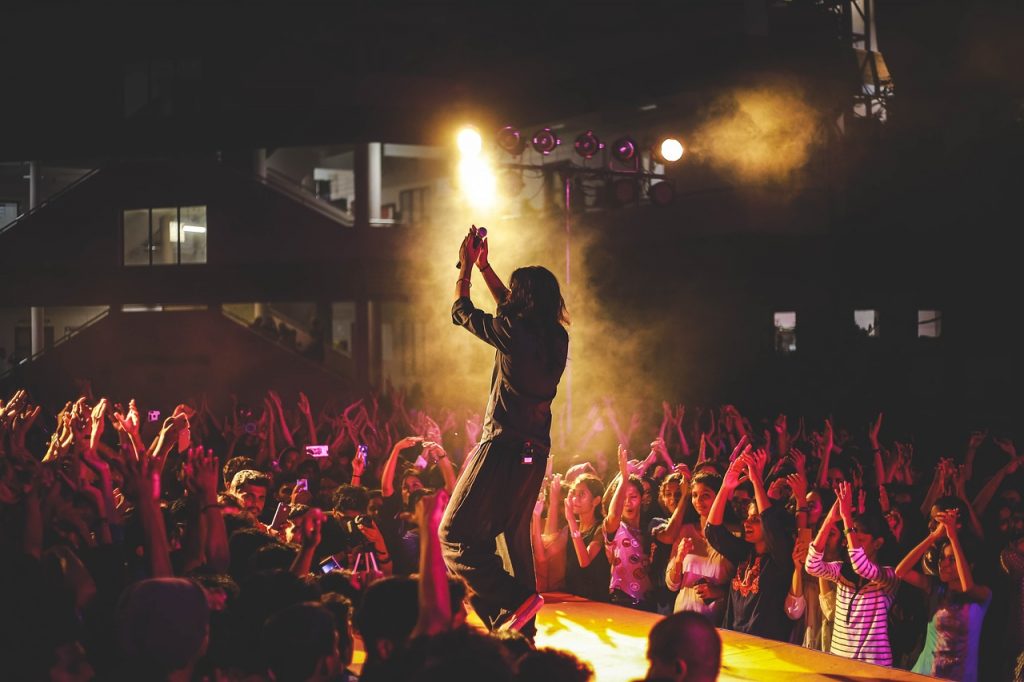
We often forget that the most important performance factor is the connection we manage to establish with the audience. People come to your show because they want to experience your art in a human way, not with some robotic perfection.
Focus on being yourself, let your emotions emerge, and enjoy the bond you’ll be creating with your audience. When you are having a good time and expressing your art through you, the audience feels it too and therefore enjoys it as much as you do.
Performing live is all about emotion and what you convey to the crowd.
Summary
Stage fright is a universal feeling experienced by just about everyone, regardless of age, gender, or occupation. It is normal to feel anxious before going on stage and it doesn’t make you any less brave or talented from experiencing this fear.
It usually appears when you are not familiar with the place where your performance will take place or when you have to do something for the first time. These sorts of audiences can be very intimidating! Using several easy tricks you can calm down before performing.
Stage fright is a horrible feeling, but if you know how to calm yourself down and overcome it, nothing can stop you from being the artist you have always dreamed of.
Focus on your why’s, read a book about self-confidence, don’t expect perfection, and focus on the connection with the audience: following this advice will help you sail through your live shows and enjoy every single moment of it.

